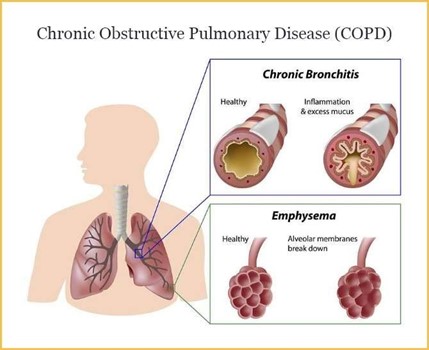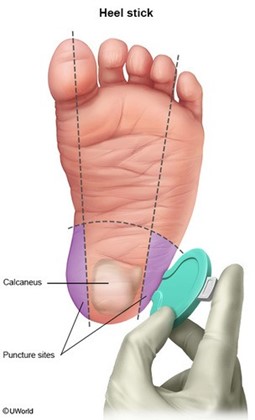A nurse in a long-term care facility has received change-of-shift report about four clients. Which of the following clients should the nurse attend to first?
A client who has heart failure and is incontinent of urine
A client who has COPD and dementia and was agitated during the night shift
A client who had a hip arthroplasty 10 days ago and reports pain with ambulation
A client who had a cerebrovascular accident 6 months ago and reports constipation
The Correct Answer is B
The nurse should atend to the client who has COPD and dementia and was agitated during the night shift first. This client may be experiencing respiratory distress or other complications related to their COPD and requires immediate assessment and intervention.
a) A client who has heart failure and is incontinent of urine requires atention, but their needs are not as urgent as those of the client with COPD and agitation.
c) A client who had a hip arthroplasty 10 days ago and reports pain with ambulation requires atention, but their needs are not as urgent as those of the client with COPD and agitation.
d) A client who had a cerebrovascular accident 6 months ago and reports constipation requires attention, but their needs are not as urgent as those of the client with COPD and agitation.

Nursing Test Bank
Naxlex Comprehensive Predictor Exams
Related Questions
Correct Answer is C
Explanation
The nurse should apply a heat pack 5 to 10 minutes prior to the procedure when planning to obtain blood from a newborn via a heel stick. This helps to increase blood flow to the area and makes it easier to obtain the specimen.
a) Puncturing the heel to a depth of 4 mm is too deep and can cause injury to the newborn. The recommended depth for a heel stick is 2.4 mm or less.
b) Withholding feeding prior to collecting the specimen is not necessary.
d) Elevating the newborn's foot for 15 minutes following the procedure is not necessary.

Correct Answer is B
Explanation
Explanation:
The nurse should respond by recommending that the parent avoids administering aspirin to the child. The use of aspirin in children, especially those under the age of 18, is associated with the risk of developing Reye's syndrome, a rare but serious condition that affects the liver and brain. It is important to educate parents about the potential risks of using aspirin in children, particularly when they have a fever. Instead, the nurse should advise the parent to use appropriate dosages of acetaminophen or ibuprofen based on the child's weight and follow the label directions for administration.
Option a suggests following the label directions based on the child's weight, which may not specifically address the use of aspirin in children and the risk of Reye's syndrome. Option c, stating that the child will require an antibiotic if she develops a fever, is incorrect because antibiotics are not indicated for all fevers and should only be prescribed if there is an underlying bacterial infection. Option d, suggesting that the child can have two baby aspirins every 4 hours, is incorrect and contradicts the recommendation to avoid administering aspirin to the child.
Whether you are a student looking to ace your exams or a practicing nurse seeking to enhance your expertise , our nursing education contents will empower you with the confidence and competence to make a difference in the lives of patients and become a respected leader in the healthcare field.
Visit Naxlex, invest in your future and unlock endless possibilities with our unparalleled nursing education contents today
Report Wrong Answer on the Current Question
Do you disagree with the answer? If yes, what is your expected answer? Explain.
Kindly be descriptive with the issue you are facing.
